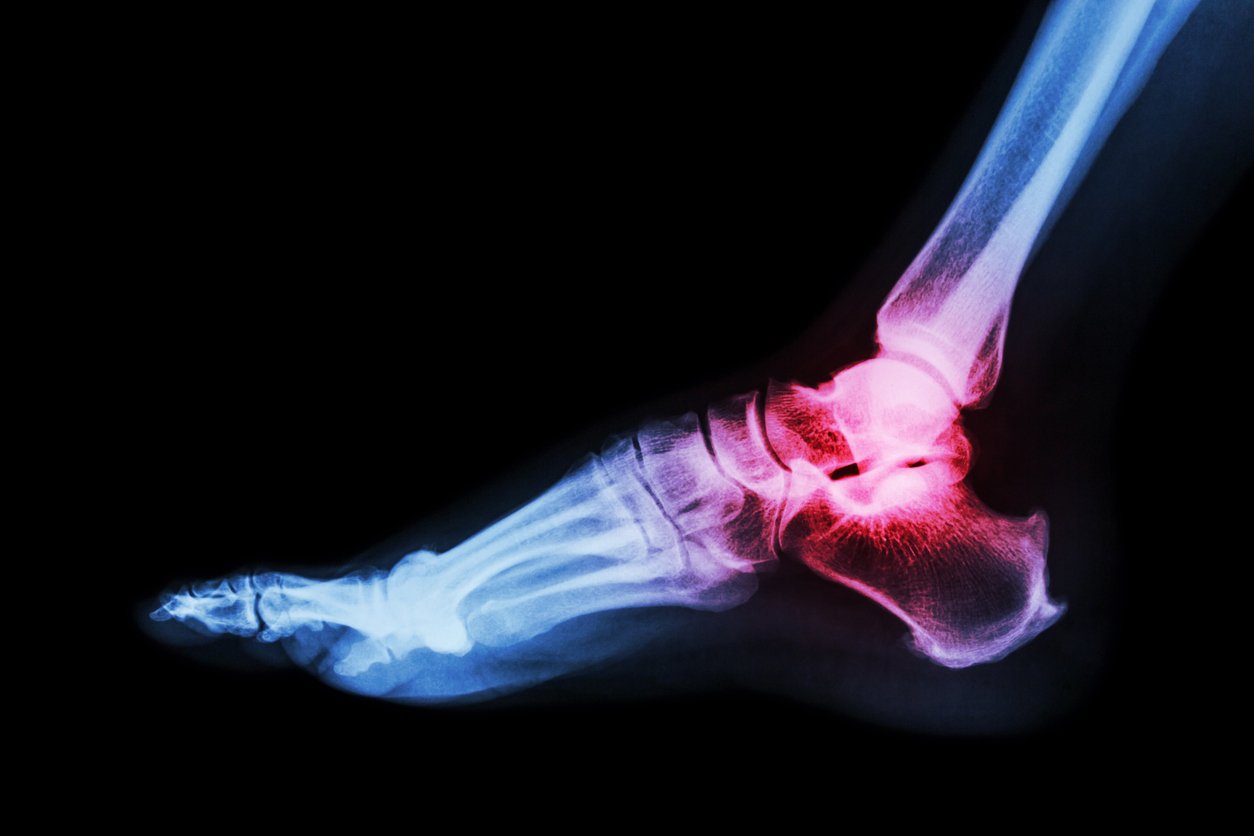In the quiet hours of the morning, as the city slumbers and the first light of dawn creeps through the curtains, John Doe rises. The day beckons with promises and responsibilities, but his first steps are met not with the soft kiss of morning dew but with a sharp reminder of his constant companion: plantar fasciitis. Like many sufferers, John wonders, “Is this affliction mine alone, or did it trickle down through the branches of my family tree, an unwelcome heirloom?” So, let’s dive in and establish, is plantar fasciitis genetic?
Understanding Plantar Fasciitis
To better comprehend the genetic component of plantar fasciitis, it’s important first to understand the condition itself. Plantar fasciitis is characterized by inflammation of the plantar fascia, a thick band of tissue that runs along the bottom of the foot, from the heel to the base of the toes. This inflammation can cause sharp pain in the heel, making walking and standing uncomfortable. While the exact cause of plantar fasciitis is not fully understood, several factors contribute to its development.

Causes and Symptoms of Plantar Fasciitis
Plantar fasciitis can have various causes, and individuals with certain risk factors are more prone to developing the condition. Some common causes of plantar fasciitis include flat feet, high arches, stress fractures in the heel bone, and the presence of heel spurs.
Flat feet, or low arches, can cause excessive stretching of the plantar fascia, leading to inflammation and pain. High arches, on the other hand, can cause excessive pressure on the heel and the plantar fascia. Individuals who engage in activities that involve repetitive stress on the feet, such as running or excessive walking, are also at a higher risk of developing plantar fasciitis.
Another understandable assumption is that plantar fasciitis is the same as or caused by a heel spur, a bony outgrowth from the undersurface of the heel bone. However, they are not the same and need to be treated as two separate conditions.
Genetics and Plantar Fasciitis: The Connection
Recent studies shed light on the shadowed path of genetic influence in plantar fasciitis. Though the condition is not directly inherited in the way eye color or certain diseases are, genetic predispositions play a crucial role. For instance, the structure of one’s foot, such as high arches or flat feet, can be inherited and may increase the risk of developing plantar fasciitis. Furthermore, genetic factors can influence the body’s ability to repair and maintain tissues, including the plantar fascia.
Research published in the Journal of Foot and Ankle Research indicates a significant correlation between family history and the incidence of plantar fasciitis. According to the study, individuals with a family history of plantar fasciitis were found to be more likely to develop the condition themselves, suggesting a genetic predisposition that could affect the strength, resilience, and healing capacity of the plantar fascia.
Statistics from these studies highlight that as many as 33% of plantar fasciitis sufferers have a family member who has also grappled with the condition, underscoring the potential genetic underpinnings. However, it’s essential to note that genetics is just one piece of the puzzle. Lifestyle, occupation, and physical activity levels significantly influence the risk and severity of plantar fasciitis.

The Genetic Link Between Plantar Fasciitis and Body Weight
In addition to foot type, genetic factors may also influence the relationship between plantar fasciitis and body weight. Excessive body weight, particularly obesity, can increase the pressure on the plantar fascia, leading to inflammation and pain. Genetic predisposition may play a role in body weight distribution and foot mechanics, contributing to the risk of plantar fasciitis.
Understanding the genetic link between plantar fasciitis and body weight can guide treatment approaches, emphasizing the importance of weight management in the prevention and management of this condition. Lifestyle modifications, such as maintaining a healthy weight and engaging in regular physical activity, can help reduce the risk of plantar fasciitis associated with obesity and genetic factors.
Effect of Lifestyle Choices on Plantar Fasciitis
As we explore the genetic component of plantar fasciitis, it is essential to consider the impact of lifestyle choices. Certain occupations, physical activities, and footwear preferences can significantly contribute to the development of plantar fasciitis.
Impact of Occupation
Occupations that involve a lot of walking or standing, such as healthcare professionals, retail workers, or delivery drivers, can put excessive stress on the feet, leading to plantar fasciitis. The repetitive foot movements and prolonged periods of weight-bearing can cause inflammation and pain in the plantar fascia.
Individuals in these occupations should prioritize foot care, including the use of supportive footwear, stretching exercises, and regular breaks to alleviate foot pain and reduce the risk of plantar fasciitis.
Role of Physical Activities and Hobbies
Engaging in physical activities or hobbies that involve repetitive stress on the feet, such as running, dancing, or jumping, can increase the risk of plantar fasciitis.
These activities put strain on the plantar fascia and the muscles and bones of the feet. Individuals involved in such activities should pay attention to proper warm-up and stretching techniques, as well as appropriate footwear, to reduce the risk of plantar fasciitis. In some cases, custom orthotic support may be beneficial in enhancing foot comfort and performance during physical activities and hobbies.
Influence of Footwear
The choice of footwear also plays a crucial role in the development of plantar fasciitis. Wearing high heels or shoes with poor arch support can contribute to the development of plantar fasciitis by placing excessive pressure on the plantar fascia. It is important to select footwear that provides adequate arch support and cushioning to absorb shock and support the foot’s natural mechanics.
For individuals with specific foot structure issues, specialized insoles or custom orthotic devices may be recommended to help distribute pressure and alleviate stress on the plantar fascia. This includes avoiding walking barefoot or in unsupportive slippers in the house, as this can also contribute to the development of plantar fasciitis.

Genetic Risk Factors for Developing Plantar Fasciitis
While lifestyle choices and environmental factors have a substantial impact on plantar fasciitis, genetic risk factors can also play a significant role in the development of the condition. Understanding the significance of genetic predisposition in plantar fasciitis is crucial for early detection, prevention, and effective treatment.
How Significant Are Genetic Risk Factors?
Genetic risk factors can significantly increase the likelihood of developing plantar fasciitis. Individuals with a known genetic predisposition or family history of the condition may have a higher risk of developing plantar fasciitis. However, it is important to note that genetic factors do not guarantee the development of the condition.
Other environmental and lifestyle factors also contribute to the development of plantar fasciitis in individuals with genetic predisposition. By understanding the significance of genetic risk factors, healthcare professionals can provide the appropriate screening, treatment, and preventive measures to manage plantar fasciitis effectively.
Are Other Foot Conditions Related Genetically?
In addition to plantar fasciitis, there are other foot conditions that may have genetic links. Conditions such as bunions, shin splints, diabetic foot ulcers, and ingrown toenails have been associated with genetic predisposition, particularly in the metatarsal bone.
These foot conditions often share common risk factors and genetic markers, highlighting the interconnected nature of foot health. By exploring genetic associations, researchers can gain insights into the development, progression, and treatment of various foot ailments, including those related to the metatarsal bone. It is essential to further investigate the genetic component of foot conditions to better understand the role of genetics in foot health.

Managing Plantar Fasciitis: Can We Override Genetics?
As the genetic links in plantar fasciitis are being unraveled, an important question arises: Can we override genetics when it comes to managing plantar fasciitis? While genetic factors may increase the risk of developing plantar fasciitis, there are various treatment options and preventive measures that can help manage the condition effectively.
Treatment Options for Plantar Fasciitis
When it comes to treating plantar fasciitis, a comprehensive treatment plan tailored to the individual’s needs is crucial. Treatment options may include stretching exercises to improve foot flexibility, orthotic devices to support the foot’s arch and alleviate pressure on the plantar fascia, and physical therapy to strengthen the calf muscles and improve foot mechanics.
In some cases, corticosteroid injections or extracorporeal shockwave therapy may be recommended. It is important to consult a podiatrist or foot specialist to determine the most suitable treatment approach based on the individual’s symptoms, foot structure, and overall health.
Preventive Measures
Preventing plantar fasciitis relies on adopting certain proactive measures to reduce the risk of inflammation and pain in the plantar fascia. Here are some preventive measures individuals can take:
- Regular stretching exercises targeting the calf muscles and the plantar fascia.
- Wearing supportive shoes with proper arch support and cushioning.
- Maintaining a healthy weight through balanced nutrition and regular exercise.
- Avoiding excessive pressure on the feet, such as prolonged standing or walking on hard surfaces.
- Using custom orthotic devices or specialized insoles to support the foot’s natural mechanics.
- By incorporating these preventive measures into daily routines, individuals can significantly reduce their risk of developing plantar fasciitis and mitigate the impact of genetic predisposition.
Is Plantar Fasciitis Hereditary?
As we delve into the genetic component of plantar fasciitis, it raises the question of whether plantar fasciitis is hereditary. While there is evidence supporting the hereditary nature of the condition, contradictory studies and differing viewpoints exist, making the heredity of plantar fasciitis a topic of ongoing scientific investigation.
Evidence Supporting the Heredity of Plantar Fasciitis
Multiple studies have provided substantial support for the hereditary nature of plantar fasciitis. Research findings indicate that plantar fasciitis can be a hereditary condition, with certain genetic predispositions increasing the risk of developing the condition.
Family history of foot problems, such as flat feet or high arches, appears to play a role in the genetic predisposition to plantar fasciitis. However, further research is needed to fully understand the genetic mechanisms underlying plantar fasciitis and how they interact with other environmental and lifestyle factors.
Contradictory Studies and Views
Despite the evidence supporting the hereditary aspect of plantar fasciitis, contradictory studies and differing viewpoints make it an area of ongoing scientific debate. Some studies challenge the consensus on the hereditary nature of the condition, citing possible user error in family medical histories or assumptions based on understandable genetic connections to foot structure.
The complexity of the condition, coupled with the variability in study designs and methodologies, has contributed to the contradictory findings. As the genetic puzzle of plantar fasciitis continues to be unravelled, it is crucial to consider the limitations of existing research and the need for further investigation to gain a comprehensive understanding of the genetic basis of plantar fasciitis.

Unraveling the Mystery: The Final Verdict
Unraveling the genetic mystery of plantar fasciitis requires comprehensive investigation, taking into account the various genetic, environmental, and lifestyle factors that contribute to the condition. While genetic predisposition may play a role in an individual’s likelihood of developing plantar fasciitis, the condition is not solely determined by genetics.
Factors such as foot structure, body weight, lifestyle choices, and proper treatment can all influence the management and prevention of plantar fasciitis, even in individuals with a genetic predisposition.
For those navigating the throes of plantar fasciitis, understanding the genetic component offers a pathway to tailored treatment and prevention strategies. Recognizing the role of genetics can empower sufferers to make informed decisions about their health, from selecting appropriate footwear to integrating specific exercises designed to strengthen the foot’s musculature and supporting structures.
At theheartofit, we understand the multifaceted nature of plantar fasciitis and the quest for relief. Our platform, theheelgp.com, specializes in reviewing a myriad of treatment options, offering insights and guidance to those looking to ease their journey. With a comprehensive approach that considers genetic predispositions, we aim to equip sufferers with the knowledge and tools necessary to address their condition effectively.

Conclusion
In conclusion, while the spectre of genetics looms over the landscape of plantar fasciitis, it does not dictate an unchangeable fate. Advances in research and understanding afford those affected a beacon of hope—a chance to reclaim their steps and stride towards a future less encumbered by pain. As we continue to unravel the genetic threads of plantar fasciitis, one question remains: How will we harness this knowledge to pave the way for pain-free tomorrows?
I hope you found this blog helpful and please feel free to comment and share.
Thanks for reading!
 | Tracy J. Founder, The heel GP |
